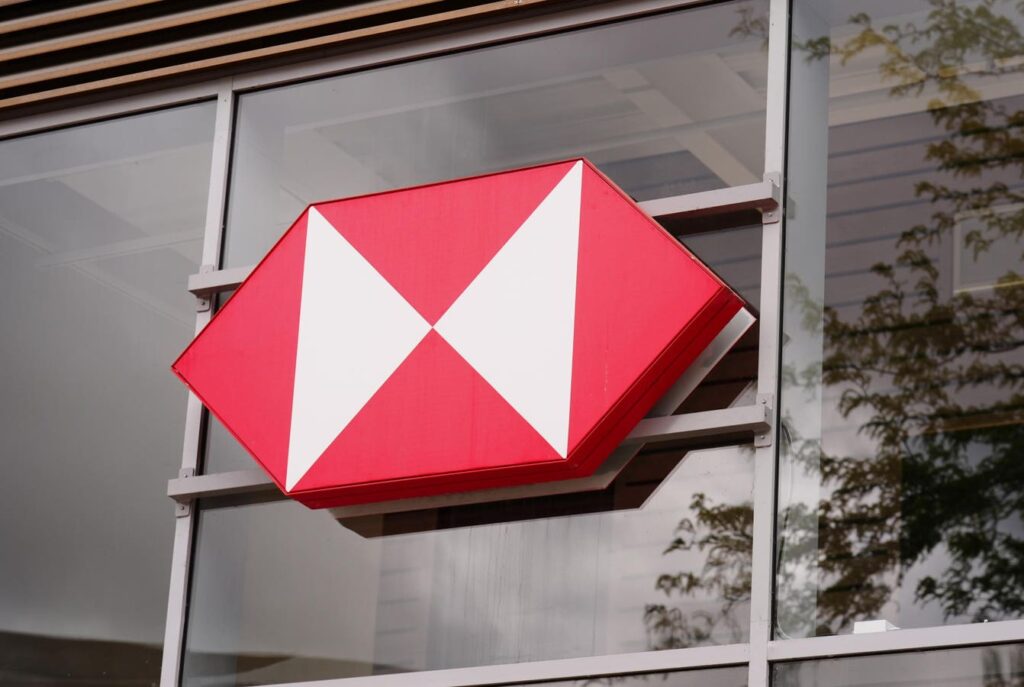HSBC’s stock (NYSE: HSBC) has performed quite well this year, increasing by approximately 21% since the beginning of January. In comparison, its competitor JP Morgan (NYSE: JPM) is only up about 10% during the same timeframe. So, what’s going on with HSBC stock?
HSBC’s financials have remained fairly strong. The major banking institution announced earnings for Q1 2025 that exceeded expectations. Although revenues fell 15% from last year, down to $17.65 billion, mainly due to business disposals in Canada and Argentina, profits before tax were $9.48 billion, representing a 25% decrease compared to the previous year; however, these results significantly surpassed forecasts. Profit before tax increased by nearly 317% from the previous quarter, indicating strong sequential growth. Strong performances in the Wealth business, Foreign Exchange, and Debt and Equity Markets have fueled profits and revenue in recent quarters. Incidentally, market leadership is indeed one of the factors we evaluate in constructing the market-beating Trefis High Quality portfolio (HQ) – a strategy encompassing 30 stocks aiming for long-term value creation. HQ has outperformed the S&P 500 and generated returns exceeding 91% since its inception. Separately, see – Should You Buy CRWV Stock After A Whopping 4x Rise?
Fee Based Product Growth
HSBC is increasingly depending on fee-based products in areas like its Wealth and Personal Banking division to fuel growth. Revenue for the Wealth business rose 21% year-over-year during Q1, driven by robust client acquisition and activity in Asia, especially in Hong Kong and India. HSBC has been placing greater emphasis on affluent clients in Asia, with its Hong Kong operations witnessing a 29% sequential increase in new customers.
The Global Private Banking segment is also performing well, supported by strong brokerage and trading activity in Asia. HSBC is introducing new wealth products and promotional offers, including cash incentives for new inflows, to attract and retain premium clients. Asset management revenues have been boosted by increasing assets under management, favorable market trends, and heightened life insurance-related earnings. The current fluctuations in the stock markets are anticipated to benefit the wealth business to some degree, as individuals increasingly pursue advisory services, while brokerage and trading sectors are also expected to gain.
Outlook
The banking giant warned that loan demand and credit quality might face challenges in the future due to the wider effects of U.S. President Donald Trump’s tariffs on major trading partners. Although the earnings have not yet fully incorporated the entire impact of the recently instated reciprocal tariffs, HSBC is primarily a trade-oriented bank when compared to its peers. In its earnings call held in late April, HSBC indicated that it was experiencing a significant decline in transaction volumes along the U.S.-China corridor for sectors not exempt from tariffs. The bank mentioned that an economic slowdown could result in a low single-digit effect on its revenues for the fiscal year, while facing up to $500 million in additional anticipated credit losses. Nonetheless, developments in U.S.-China trade negotiations in recent weeks have sparked some optimism for reducing tensions.
There are a few reasons for optimism regarding HSBC stock. Firstly, its valuation is still considered fair, as the stock is trading at just over 1x tangible book value (net assets minus goodwill). The bank is also concentrating on enhancing efficiency and reducing costs, with a target of annualized savings of $1.5 billion by the end of the next year. In January, HSBC outlined its plans to scale back its mergers and acquisitions as well as some equities businesses in Europe and the Americas, while refocusing on its more profitable markets in Asia, which are seeing quicker economic growth, increasing wealth, and availability of more low-cost deposits. HSBC is also amplifying its commitment to capital returns, having recently increased its share repurchase authorization to $3 billion, with the new buyback anticipated to be completed before its 2025 interim results.
This could also help bolster the stock price. Furthermore, the bank aims for a mid-teens return on average tangible equity between 2025 and 2027, which is above the average for the industry. On the flip side, HSBC’s core net interest income (NII) might be under pressure due to declining interest rates, creating a challenge for overall revenue growth, as net interest income accounts for around half of the bank’s total revenue. For more information, see our analysis concerning HSBC’s valuation for a closer look at what’s driving our valuation for HSBC stock.
While HSBC may offer steady growth, the Trefis HQ portfolio is concentrated on long-term value creation. With a collection of 30 stocks, it has a track record of successfully outperforming the S&P 500 over the past four years. What’s the reason? As a group, HQ Portfolio stocks have provided better returns with reduced risk compared to the benchmark; offering a calmer experience akin to HQ Portfolio performance metrics.
Read the full article here

